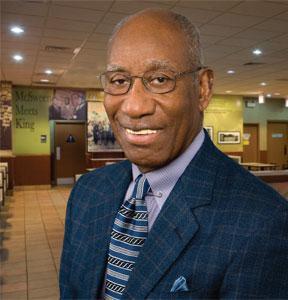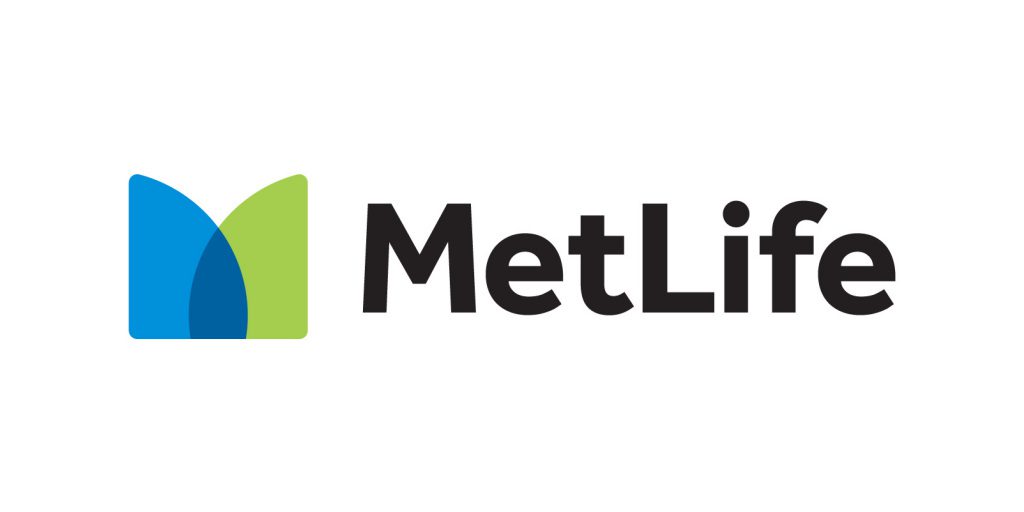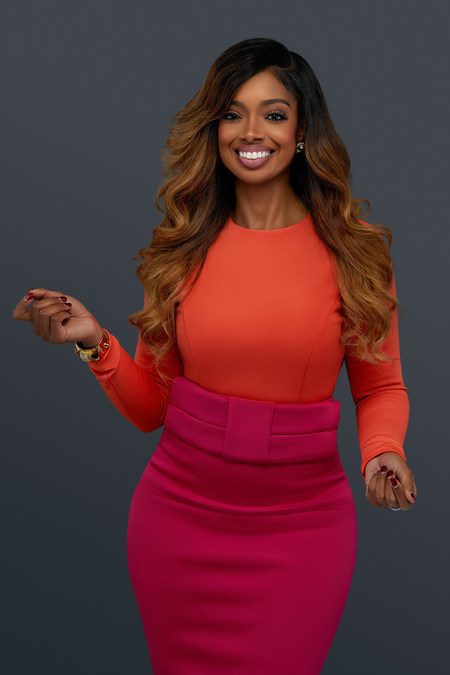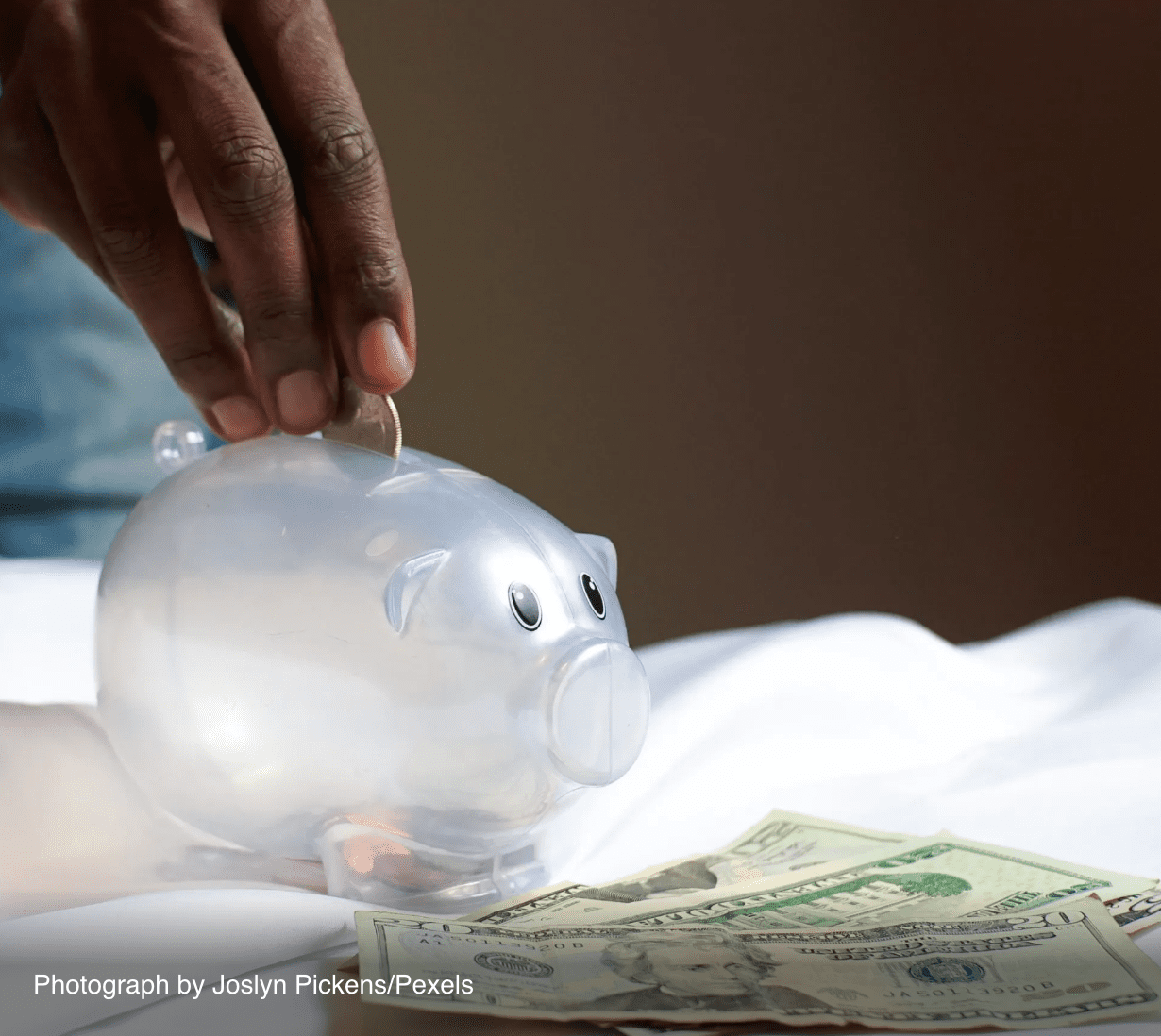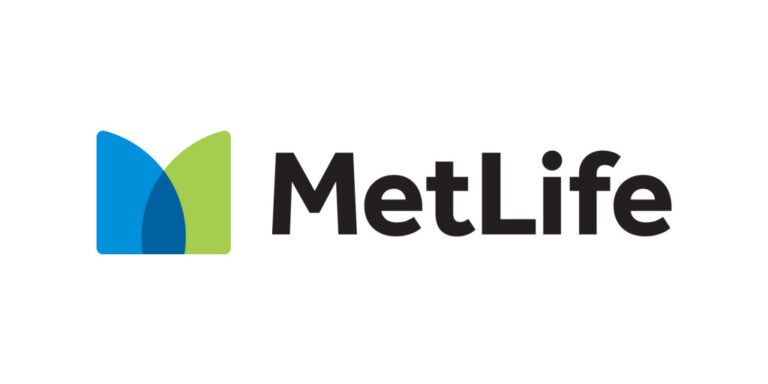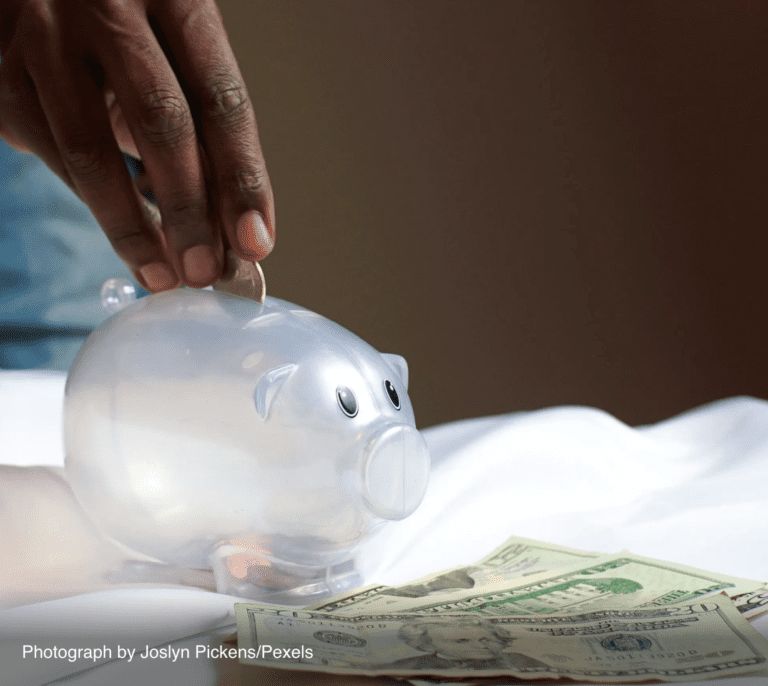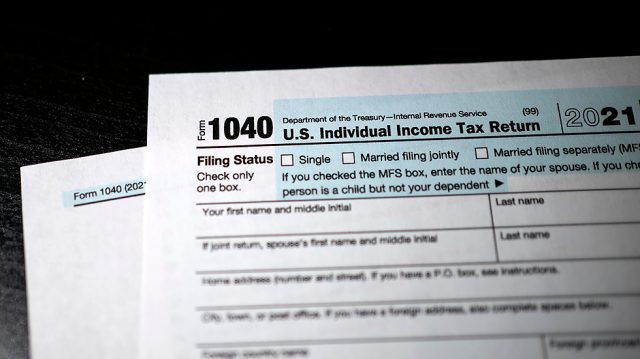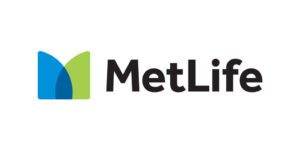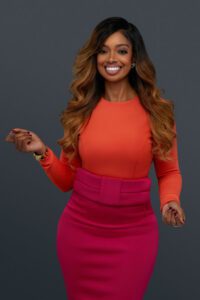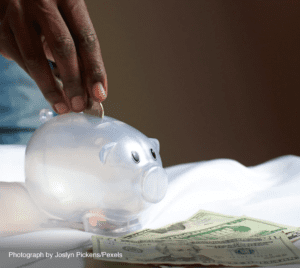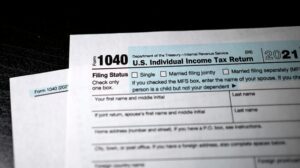Ricky Volante wanted to pay college athletes, and he had a damn good plan to do it. He just needed money, which is why he was standing outside the Roman Colosseum, with earphones, interrupting his own honeymoon to take a conference call with a potential patron.
It was March 2019, and Volante, a sports and entertainment lawyer and former college baseball player, hadn’t planned on doing any business. But as CEO of what would become the Professional Collegiate League, a startup basketball venture with the modest goal of upending the National Collegiate Athletic Association’s entire business model, he didn’t have much choice.
For the previous two years, Volante and a small team of fellow revolutionaries—including antitrust economist Andy Schwarz and former NBA player David West—had been hustling to launch their league, which would do what the NCAA and its member schools would not: treat and compensate basketball-playing college students like workers. The PCL would pay for play, unambiguously, providing athletes with $50,000 to $100,000 salaries to compete against each other during the summer, while attending college on the PCL’s dime during the academic year.
Though Volante believed the NCAA itself was irredeemable, he still thought there was something to be salvaged in the fusion of elite sports and higher education. The marriage could be saved by the market, he reasoned, at least for several scores of top-ranked basketball prospects each year.
“If we stripped away the college part and were purely just a developmental basketball league, people would compare us to the G League teams and the NBA product, rather than comparing us to Duke or (North Carolina’s) product,” Volante said. “Either we have the opportunity to be the best college basketball product or, frankly, one of the worst professional products.”
Despite his contempt for the NCAA system, Ricky Volante still believed there was something worthwhile in linking elite sports and higher education, so long as the athletes could be paid.
Courtesy Ricky Volante
Volante and company had taken their renegade idea to a series of Historically Black Colleges and Universities, pitching education, athletic revival and economic empowerment. They had gone to Wall Street and Silicon Valley, promoting the opportunity to enter a multibillion-dollar sports sector dominated by “an unpopular, structurally misaligned incumbent.” They had gone to prominent pro athletes, current and retired, arguing that their idea could help right the wrongs those athletes had endured as collegiate amateurs. They made their legal, economic and sociological case to newspaper reporters, on podcasts, and at umpteen panels and symposiums from Los Angeles to London.
Along the way, they collected plenty of interest while being ahead of the curve on many of the trends now disrupting college basketball. Athletes profiting from their names, images, and likenesses? See: 28 states and counting. Additional labor rights? See: Justice Brett Kavanaugh’s Alston v. NCAA concurring opinion. HBCUs as a viable destination for top high school athletes and a launch pad for market-driven change? Hello, Deion Sanders and Travis Hunter. Summer pro hoops? The PCL idea and Ice Cube’s Big3 have the same birth year. New, more inclusive ways of developing and marketing budding basketball stars? Check out and G League Ignite.
For being at the vanguard, though, Volante and company had amassed very little in the way of hard cash.
The Colosseum call was a potential breakthrough. On the other end of Volante’s phone was Vivek Garipalli, the health care entrepreneur and soon-to-be “meme stock” billionaire. Garipalli was exactly the kind of investor the PCL had been looking for: a whale interested in but not necessarily a fan of college sports, who was raring to take on the establishment.
In turn, Garipalli was impressed by the PCL’s leadership, particularly their mission focus and intuitiveness. “Those are the types of individuals who build something special,” he said.
A month after their call, Garipalli wired over a six-figure check, the PCL’s biggest score up to that point. With its intended start date of June 2020, the league would soon announce eight East Coast cities where it planned to field teams, as well as the creation of an athlete advisory board.
Walking about the travertine walls of the Colosseum, once the site of gruesome gladiator fights, Volante was struck by the symbolism: Here he was, advancing upon another empire that exploited its most physically gifted. He believed in the PCL’s mission, both as a righteous cause and a profitable enterprise.
The market, however, would have to decide.
Right now, the potential of that market is on full display: March Madness is once again upon us, a billion-dollar event that embodies the traditional appeal of college sports. But beneath the annual spectacle of buzzer-beaters, busted brackets and Capital One ads lies a tectonic shift. From public opinion polls to the Supreme Court, there is a growing consensus that the entire intercollegiate enterprise is fundamentally flawed. That it takes economic advantage of the athletes it purports to uplift; that it shortchanges too many of those athletes in the classroom while failing to safeguard their physical health and psychological well-being; that these problems are especially acute for black athletes who predominate the biggest money-making sports, basketball and football; and that the NCAA and its primarily white member institutions are too invested in the status quo to chart a new and more equitable path.
BETTING AGAINST THE NCAA
At its core, the PCL’s rationale was an all-in bet that change is inevitable, and that it can successfully come from competition outside the NCAA system. The first part of that wager has proved prescient; the second part has not. The pay-the-players league is scarcely closer to launching than it was three springs ago, and the story of its rocky road illustrates a venerable business truth: It’s one thing to see the future, and another to seize it. “If you move slower than the folks in Indianapolis,” said Schwarz, referring to the NCAA, “then you don’t deserve to make money.”
Volante and Schwarz were first introduced while the former was attending law school at Cleveland State. There, Volante studied under Chris Sagers, a professor and nationally renowned expert on antitrust law. Volante’s legal studies coincided with the landmark class-action lawsuit, O’Bannon v. NCAA, which former UCLA basketball star Ed O’Bannon filed against the NCAA and video game developer EA Sports over the use of college athletes’ NIL; Schwarz was a trial consultant for the plaintiffs.
Sagers knew Schwarz, the co-founder of a Bay Area-based economic consulting firm, OSKR, needed someone with a legal background to help him with a Marquette Sports Law Review article about the Ninth Circuit Court of Appeals’ O’Bannon ruling. Volante ended up co-authoring the article with Schwarz. As they continued to discuss their mutual contempt for NCAA amateurism, Schwarz broached an idea for how to play havoc with it.
Schwarz had been ruminating on this goal for the better part of two decades. In 1999, he and his co-worker Dan Rascher, a professor at the University of San Francisco, authored a paper that laid out why “college sports need not include amateurism to prosper.” Over the next 15 years, Schwarz became a prominent advocate for college athletes’ economic rights, testifying at Congressional hearings and writing articles for outlets including Deadspin and Vice.
By the mid-2010s, however, legal challenges to amateurism had stalled. Federal judges ruled in O’Bannon that the NCAA was violating antitrust law but could nevertheless continue to severely restrict athlete compensation. Previously, an effort by Northwestern University football players to unionize—and perhaps be subsequently recognized as school employees—petered out when the National Labor Relations Board declined to exercise jurisdiction over the case.
Even the Department of Justice seemed keen to uphold the NCAA’s prohibition on pay-for-play: In the fall of 2017, the FBI arrested 10 individuals, including four college basketball assistant coaches, charging them with defrauding universities by bribing high school recruits to attend Adidas-sponsored schools with under-the-table payments. Meanwhile, university presidents, athletic directors and head coaches at the investigated schools—including LSU’s recently fired Will Wade—escaped the legal system’s scrutiny. (Ultimately, the unprecedented charges resulted in just one of the accused, former Arizona assistant Emanuel “Book” Richardson, serving jail time).
“There simply wasn’t a clear path forward, at that time,” said Volante. “There wasn’t anything on the horizon that suggested there would be wholesale reform at that point.”
Andy Schwarz, an antitrust economist who consulted with the athletes in O’Bannon v. NCAA, has pondered ways to disrupt the association’s “cartel” for two decades.
Courtesy Aspen Institute
Schwarz felt deflated. But he also sensed an opportunity. In economic theory, cartels form when a group of competitors, like the NCAA’s member schools, decide they can make more money working together than against each other. Those same cartels fall apart when some members decide they are getting the shaft.
Within the NCAA, Schwarz realized, HBCUs were the stakeholders holding the short end of the stick. Once-proud sports programs whose talent bases had been depleted by decades of desegregation, they were now subsisting on the financial scraps thrown off by the NCAA and the Power Five conferences. Maybe HBCUs would be willing to break with a system that didn’t seem to benefit them. “If you want to disrupt a cartel,” Schwarz said, “you need to find someone inside it who is not winning.”
Along with Volante and Bijan Bayne, a Washington, D.C.-based author and historian, Schwarz created a business plan for an HBCU-only basketball league that would pay athletes five- and six-figure salaries and allow them to monetize their NIL—a level of economic freedom that could help the HBCUs poach top high school recruits from the likes of Kentucky and Duke.
In June 2017, the three trial-ballooned the idea of what they originally called the Historical Basketball League, or HBL, in a Vice story (written by one of the co-authors of this article) titled, “The Plot to Disrupt the NCAA with a Pay-for-Play HBCU Basketball League.”
Soon after the story was published, Schwarz began receiving offers of assistance from an assortment of kindred spirits, including Mekka Okereke, Keith Sparks and Ralph Greene.
Okereke was a director of engineering at Google who, as a rare African-American developer in Silicon Valley, co-chaired the Black Googler Network, one of the company’s largest employee resource groups. With an initial $25,000 investment, Okereke helped bankroll the shoestring operation in the early going, and quickly emerged as the league’s financial guru.
Greene had just ended a long career as a Nike executive, where he had led sports marketing projects with athletes such as Lebron James and Tiger Woods. He had also been involved in Nike’s all school-deals with Ohio State and USC in the mid-90s. Sparks was Greene’s classmate at Stanford, who, after graduating, worked for several years in the school’s athletic department, before pursuing a career in renewable energy.
While at Stanford, Sparks said he had a front-row seat to the racial inequities in big-time college sports: poorer black athletes subsidizing richer white ones. He had been particularly touched by the plight of former Stanford and NFL cornerback Vaughn Bryant, who hailed from inner-city Detroit and was helping raise his preteen brother in Palo Alto. “And we weren’t allowed to help him—alums weren’t allowed to help him,” said Sparks.
Sparks, who says he was “integral” to Stanford’s hiring of its first two black head football coaches—Dennis Green in 1989 and Tyrone Willingham in 1995—appreciated the HBL’s unambiguous effort to address racial inequities in college sports. But he worried about the face of the new league.
“Andy is a great guy, but he is a white, Jewish guy,” Sparks said. “How would he be received?”
‘NONE OF THEM WANT THE PLAYERS PAID’
In August 2017, Schwarz, Volante, Sparks and Greene flew to Amelia Island in Florida to introduce their league to the largest gathering of HBCU presidents: the annual conference of the National Association for Equal Opportunity in Higher Education (NAFEO).
“Everything went wrong,” said Volante, who would later recall it as “one of the most painful experiences of my life.”
Because other panelists ran long, the HBL’s scheduled hour-long, primetime segment was condensed to a half hour, during dinner. Amid the clanging of flatware, Schwarz, who can veer from loquacious to verbose, went deep into the weeds.
“Just because it is my idea,” Schwarz said, “doesn’t mean I’m the right person to make it happen.”
Several months later, the HBL hosted a meet-and-greet in Atlanta at the Celebration Bowl, the postseason championship of the two premier HBCU D-I conferences. The core group was joined by Okereke and the event seemed to yield fruit. Representatives from a number of schools—including Florida A&M, Grambling State and D-II Clark Atlanta—not only attended but expressed interest in the league.
Volante had just been hired by a mid-sized law firm in Cleveland to build a sports and entertainment practice, but he fixed his focus on the HBL instead. “I guess looking back at it, in my mid-to-late-20s, I was just willing to throw everything at it and was very bullish that we were going to find a way,” he said.
Volante believed that once one HBCU made the jump, others would soon follow—along with financing, athletes and coaches. And Clark Atlanta seemed like the school to set the dominoes in motion, especially since Sparks had a personal connection to the university’s president, Ron Johnson.
Schwarz had determined that the average NCAA distribution to any school in the Southern Intercollegiate Athletic Conference (SIAC), to which Clark Atlanta belonged, was no more than $38,000 per year. The HBL, on the other hand, was proposing a $50,000 upfront signing bonus plus a yet-to-be-determined portion of future revenue in exchange for an institution providing 12 scholarships for HBL players and the use of school logos and facilities. In a pro forma income statement Volante furnished in the course of discussions, he projected that, if all went right, the HBL would field 24 teams and net $133 million in revenue by its fifth year of operation.
After a number of meetings with administrators, deans, the school’s head basketball coach, and several regents, Volante believed the HBL had successfully run Clark Atlanta’s gauntlet ahead of a phone conversion that was supposed to be a final review of the term sheet he had drafted.
The start-up league struggled to find willing partners in HBCUs, overestimating the schools’ willingness to pursue a risky new venture that could potentially compromise their standing within the NCAA.
Courtesy Ricky Volante
But on that call, the school suggested that CAU should only be interested in partnering with HBL if its athletes were not paid. (A university spokesperson did not respond to a request for comment.)
And so it went: The president of Fisk University, an NAIA school in Nashville, who had signaled such enthusiasm at their Celebration Bowl meet-and-greet, ended up “ghosting” afterwards, Volante said. The presidents of South Carolina State and D-II Benedict College called off an introductory meeting 10 minutes before Volante was set to board a plane to visit. Volante and Schwarz flew across the country to meet with Florida A&M, at the invitation of the school’s associate athletic director, only to be informed 10 minutes before the meeting that their point of contact had been sacked the night before.
The mounting misfires left Volante exasperated. But the HBL had perhaps underestimated the desire of HBCUs to pursue a new and risky venture, especially one that could antagonize the NCAA. HBCUs were collecting a relative pittance from the college sports status quo, but most of them needed whatever money they could get. Moreover, many HBCUs rely on funding from state legislatures, which are often dominated by alumni of larger and more powerful state schools.
“I certainly understand any reticence on part of the HBCU world,” said Greene, “because the long history is one where there isn’t anyone to trust. You have to make sure you have to protect what little eggs you have in your basket.”
Volante’s takeaway was that HBCUs were just as entrenched in a system that took advantage of black athletes as predominantly white institutions. “This is why, privately, I lose it when people like Jemele Hill say [HBCUs] are in the corner of the athletes,” Volante said, referring to Hill’s much-discussed 2019 essay in The Atlantic, which called for black athletes to collectively ditch white schools in favor of HBCUs. “I can tell you none of them want the players paid.”
For Schwarz, the lesson was even more discouraging. No school would willingly disrupt the NCAA economy, because schools aren’t interested in disruption. “You don’t get to be the president of a university—especially one that is known for being known for things, like historical things—by being innovative,” he said.
‘A LOT OF MISALIGNMENTS’
Philosophically adrift and financially strapped, the HBL hoped to regain momentum through new leadership. For the newly created position of COO, they sought someone with an NBA pedigree–someone who could access fellow players as a funding network, and who had the lived experience of being denied the opportunity to earn money as a college athlete.
“Let’s face it, none of us have played basketball,” said Sparks. “We were keenly aware of our shortcomings.”
Enter David West, who had retired from basketball in 2018 after 15 years in the NBA, which concluded with two championships as a member of the Golden State Warriors and more than $93 million in career earnings. West, a chiseled 6-foot-9 center, had a reputation for on-court toughness and off-court intelligence. Yet he had never stepped forward as a public critic of the NCAA.
“You don’t see many guys dancing in this space, mainly because there are some political implications,” said West. “There is a bit of a risk, and you don’t really see guys willing to take those types of risks or involve themselves in things that are implicitly or explicitly political.”
West had been a lightly recruited prospect out of Garner High School in North Carolina, with a poor GPA. He says he “intentionally flunked English” his senior season in order to be able to play a post-graduate year of basketball at Hargrave Military Academy in Virginia. Had the HBL been available to him, West says, he would have jumped at the opportunity. Instead, he went to Xavier, where he played four years under head coach Thad Matta, earning national player of the year honors as a senior.
Retired NBA veteran David West believed it would be counterproductive for the PCL to aggressively pursue funding from pro players, a position at odds with two of the league’s biggest backers.
AP/Marcio Jose Sanchez
In November 2018, the HBL announced that West was coming aboard as its COO and chief basketball talent recruiter, creating a wave of positive press, with stories in The Wall Street Journal, Sports Illustrated and Los Angeles Times. No sooner had the Journal’s feature appeared than West got a call from Harold Little, the father of North Carolina freshman Nassir Little, who wanted to explore the HBL as a potential option for his son.
The younger Little had been a heralded, top-10 recruit for the Tar Heels out of high school, but had struggled to find playing time in his first year. West informed Harold Little that there was not yet a league to play in; Nassir ended up declaring for the NBA draft, where he was a late first-round pick of the Portland Trail Blazers.
“The fact we had a player of Nassir’s caliber ready to leave a blue-blood program like UNC to join us—we were pumped,” said Volante. (In an interview, Harold Little was complimentary of West and Volante, but said his son was never seriously considering the HBL.)
As they pursued coaches for the league, West and Volante say they both had multiple, serious discussions with Matta, who had stepped down as head coach of Ohio State in 2017 following a 13-year tenure that included a Final Four appearance. Matta, who did not respond to multiple requests for comment, ultimately passed on the offer, taking an administrative role at Indiana in 2021. Other HBL coaching targets included former UNC and SMU coach Matt Doherty; women’s basketball Hall-of-Famer Nancy Lieberman; ex-UNC Charlotte coach Alan Major; and Book Richardson, who was released from federal prison in October 2019.
“At the end of the day,” said Volante, “what Book went to prison for is exactly what we wanted him to do, which is to offer athletes money, which they deserve, and get them to sign with us.”
Though West’s arrival created an “outpouring” of venture capital interest, Volante says it was largely premised on an incorrect assumption that the HBL was doing well financially. In reality, after completing its $250,000 angel round of investment, the league was still in the process of trying to raise a seed round of $2.5 million. “People thought that we had (already) raised $20 million,” said Volante. “So there were a lot of misalignments.”
THE ’30-FOR-30′ EFFECT
All across Silicon Valley, money was pouring into firms and projects that promised to pay investors more by paying labor less, usually with the aid of technology. By contrast, the HBL wanted to transform college basketball players—the NCAA’s version of economically exploited Uber drivers—into actual paid employees. As an investment, it would take a number of years to pay out.
“We continuously found the VC’s wanted to get in and get out,” said Volante. “(They) were not looking for this to be a legacy investment, and the problem is this is sort of a legacy investment.”
West, who took the PCL gig gratis but declined to invest his own money, also poured cold water on the idea that NBA players would open their wallets to the cause. Times had changed since the early aughts, when pro athletes were known to throw money at risky business projects. “Really it was the 30 for 30 effect,” West said, referring to the ESPN documentary series, which had episodes highlighting cautionary tales of free-spending athletes. “Guys don’t want to be one of those stories, and it is in the back of most guys’ minds.”
West’s stance put him in conflict with two of the fledgling league’s most important backers, Garipalli and Okereke. “David was adamant that if we blanket cold-call everybody in the NBA, he would look like a schmuck, and it would damage our reputation,” said Schwarz. “Mekka was adamant we cold-call everybody in the NBA.”
In the end, Volante sided with West, which, among other strategy disputes, prompted Okereke to pull back from his active involvement by the beginning of 2020; Volante said they remained cordial. (Okereke did not respond to numerous requests for comment.)
Another point of contention was bubbling up between Volante and Schwarz: California state Sen. Nancy Skinner’s Fair Pay to Play Act.
Mekka Okereke (center), a top developer at Google, had been one of the key early supporters of the league. He lobbied unsuccessfully for the PCL to prioritize NBA players with its fundraising pitches.
Courtesy Andy Schwarz
The 2019 legislation, designated SB206, drove the wave of state-based laws that swept the nation and eventually compelled the NCAA to lift its prohibition on athletes profiting from their NIL. Schwarz had been advocating for college athlete NIL rights since the early 2010s and had presented the idea to Skinner at a 2015 Oakland Rotary Club function, prior to her election to the state senate. After several fits and starts, Skinner tapped Schwarz to help her craft the bill forbidding California universities from interfering with athletes’ opportunities to do endorsement deals.
At the time, Schwarz says, he thought the legislation was “never going to happen,” but felt his public lobbying for it would be good for the PCL.
In September 2019, California Gov. Gavin Newsom signed SB206 into law during a televised episode of Lebron James’ HBO series, The Shop. For college rights advocates, the statute represented a post-O’Bannon renaissance, especially as other states quickly moved to pass their own similar pieces of legislation.
But Volante was dismayed. He viewed NIL as at best a half-step in granting college athletes their long-overdue financial freedoms, and ultimately a counterproductive one, because it would serve as a public pressure relief valve.
“I think this is an instance where you are going to successfully bring change that is going to be detrimental to the overall moment,” he said. “And frankly I think I have been proven correct.”
More acutely, as Volante would angrily tell Schwarz in a phone call, the passage of NIL laws hampered their already difficult endeavor of standing up the PCL. The NIL movement “cost us investment opportunities,” Volante said. “I have to spend half the conversation on any investor call [explaining] why the system is still nowhere near equitable and fair.”
In a way, their disagreement over NIL highlighted their own misalignments as college athlete crusaders. Schwarz saw value in incremental gains, Volante less so.
“In my opinion, the system is not redeemable,” Volante said. “Andy does believe that the system is redeemable, to some extent.”
Still, there were glimmers of hope. In November 2019, Volante and West went to Los Angeles for several meetings, including a pitch to The Tornante Company, the private investment firm founded by Michael Eisner, which then included Topps trading cards among its holdings. During this trip, they decided to change the league’s name, now that they had conclusively moved away from partnering with HBCUs.
In January 2020, the league officially rechristened itself as the Professional Collegiate League, a name that underscored its core mission of paying college athletes.
A LEAGUE IN A BOX
Two months later, Volante had just finished interviewing Doherty in North Carolina when news broke that the ACC Tournament had been canceled on account of the novel coronavirus.
“That knocked us off our trajectory,” said Volante, who hasn’t boarded a plane since he flew back home to Ohio from that trip. Plans to visit Canada for meetings West had set up with potential investors were scuttled. So was a panel discussion that the PCL was going to host at the Final Four in Atlanta.
COVID had suddenly put the entire 2020-2021 college basketball season in jeopardy of either being canceled or severely curtailed. Looking to capitalize on a suddenly less crowded basketball market, Volante frantically tried to pitch investors, including big names like Tornante and Haslam Sports Group, on providing short-term funding that would allow the PCL to get up and running within a one-city bubble in the Hampton Roads area of Virginia, where they had been planning to support a team.
Schwarz had already been re-conceptualizing the PCL as a “league in a box,” something that would be ready to roll out at a moment’s notice. “We were trying to let everybody know we had this window of opportunity,” said Volante, noting the “recklessness” schools were exhibiting by forcing their unpaid athletes to stay on campus, even while other students were studying remotely on account of COVID.
Vivek Garipalli wasn’t comfortable putting in more money than his initial six-figure investment because he lacked sports-business expertise.
Courtesy Clover Health
Investors repeatedly told Volante they wanted the PCL to lock up players before they committed resources. Though he could have afforded it, Garipalli didn’t want to plunk his own millions into the league. “The rare circumstances where I would put in a significant amount of capital and be the main investor is if it is an industry and sector like health care,” he said. “When you are not an expert, you end up giving bad advice without realizing it, because now it is such a big investment you feel like you need to give advice.”
Volante says one potential investor group, who he declined to name, offered money contingent on the PCL requiring its athletes to engage in MMA-style combat during the games. “They basically wanted us to turn basketball into a fighting sport,” Volante said. The offer was rejected.
Throughout early 2020, Volante believed he was close to landing another whale: an executive for a midwestern engineering firm who claimed to be an heir to a famous family fortune. The executive, Volante says, enthusiastically offered to give the PCL $2.5 million in initial funding and a commitment to tens of millions more as the league grew.
Volante requested the executive not be named in this story for fear of a lawsuit, but Sportico confirmed his account with several other sources, including Katrina Ghazarian, CEO of Gameday HR, who had brought the parties together.
By June 2020, Volante says, a term sheet that would alone close the angel investment round was in the final stages. Then, the executive asked about the kinds of coaches the PCL was recruiting. Volante says that when he mentioned Book Richardson’s name, the executive was apoplectic, saying that associating with a former felon would ruin the reputation of everyone connected to the PCL. The offer was pulled.
Ghazarian says the breakdown in negotiations was more complicated, and that the executive had deeper concerns about the PCL’s ability to recruit athletes.
There was also the problem of landing a television or streaming partner. Volante had talks with ESPN, CBS and Fox Sports about being the PCL’s global distributor, but none of those networks were interested in risking lucrative relationships with the NCAA and conferences. The PCL had also flown to Stamford, Conn., to pitch NBC Sports. From the PCL’s perspective, NBC’s existing ties to college athletics were basically limited to its exclusive broadcast deal with Notre Dame. Nevertheless, the Peacock passed.
FloSports, the VC-backed subscription streaming service that had been assembling an offbeat sports line-up, showed real interest. In July 2019, a FloSports executive sent Volante an email saying the streamer was preparing an agreement for final review. Two weeks later, however, FloSports formalized an exclusive, two-year deal to broadcast Colonial Athletic Association football and basketball games.
HEADING INTO OVERTIME
Last spring, the PCL announced a media distribution deal with linear network Next Level, and its digital sibling, For the Fans, which did not include any money for rights fees. By then, the league had scaled down its plans to an inaugural season of eight teams playing in a single site outside of Washington, D.C. Though it still planned to support up to 96 players, it had yet to break seven figures in fundraising.
All the while, the PCL’s original target was moving—and more quickly than could have predicted back in 2015. The NCAA was loosening its grip on amateurism in the face of the snowballing state-based NIL bills. The NBA’s G League had launched a development squad, Ignite, which included prep-to-pro players including future NBA lottery picks Jalen Green and Jonathan Kuminga. Then last March, the sports media company Overtime announced it would allocate a portion of an $80 million Series C fundraising round to create its own pro basketball league for 16- to 18-year-olds.
Overtime Elite, which is paying players at least $100,000 per year, shared many core characteristics with the PCL, including plans to cover a portion of college tuition for players. Although the NBA never officially gave OTE its stamp of approval, NBA commissioner Adam Silver endorsed the “optionality” of the upstart league by citing, in particular, that its investors included NBA players Kevin Durant and Carmelo Anthony.
Insofar as OTE targeted high-school-aged players, it could theoretically coexist with the PCL. Nonetheless, there was resentment toward the Jeff Bezos-backed new kid on the block: For one thing, the PCL had been actively courting former NBA executive Aaron Ryan, and was caught by surprise when he was named OTE’s commissioner. “Everyone else is really upset with Aaron,” Schwarz said of his cohorts. “What the f— is the guy going to do? We never raised the money to hire him, and while the fingerprints of our deck, our plan, are all over elements of the OTE, I personally just don’t think it is trade-secret level.”
Volante is less forgiving, perceiving Overtime as NCAA-like in how it has profited off unpaid athletes. The company, founded in 2016 by former William Morris Endeavor digital head Dan Porter, became an online behemoth by splicing video highlights of high school basketball stars such as Zion Williamson to gain millions of views on social media. “Overtime worked toward its present-day $250 million valuation based on exploiting high school athletes who are not compensated for appearing on their platform,” Volante said.
“It’s unfortunate that another organization was unable to execute on their plan, and in turn is using this moment to blame us for their failure,” said Ben Sosenko, Overtime’s head of communications. “What they are saying is just plain false. At the core, sports is about winning and about losing, and those who are able to do either gracefully are the ones we remember.”
To be sure, the PCL’s current financing is not beyond scrutiny: Over the years, Garipalli has been repeatedly accused of engaging in predatory business practices in the healthcare industry. Those criticisms crescendoed last year when Hindenburg Research, an activist short seller, wrote a scathing report about Garipalli’s current company, Clover Health, alleging, among other things, that it had failed to disclose to its investors an ongoing DOJ investigation. Garipalli responded with an open letter posted to Medium, in which he stated, “Clover does not believe it is, or has been, in violation of any rules or regulations related to the inquiry.”
Asked about the reputation of the PCL’s biggest backer, Volante said: “I obviously can’t speak to any of the things at Clover Health. But, at least in my personal interactions, (Garipalli) has always said and done the things I would want to see done by someone supporting us.”
Well, give or take a few million dollars.
THE BILL COMES DUE
Despite its failure to launch, Schwarz believes that PCL still has value—only not in the way he originally envisioned.
He received his graduate degree in business in 1994 from UCLA, which placed heavy emphasis on a teaching practice called the case method, requiring students to inhabit the role of a leader in an organization under duress.
The PCL “is a case,” Schwarz said. “Somebody should write this up to (show) that if you build a better mousetrap, the world won’t beat a path to your door.”
In the meantime, Schwarz has turned his attention to a new, less expensive project that addresses his pet cause: a board game called “Envelopes of Cash,” the object of which is for players to induce college football recruits to commit to programs with under-the-table enticements.
Earlier this month, Schwarz launched a Kickstarter campaign to raise money to bring the game to market. It quickly surpassed the $10,500 pledge goal it set.
As for his previous brainchild, Schwarz said, “There is a certain point where throwing my effort at this league is just providing me with a self-kick in the ass with how stupid either I am or the world is that my idea is not making it.”
Among the PCL’s founders, there’s an increasing sense that the clock is ticking and the runway is shortening, and that the entrenched incumbents in college sports are only interested in disrupting the system on their own terms.
“We were not just competing with the NCAA,” Volante said. “We were competing with the NCAA and all its partners and all the conference partners and the schools partners. And when you added that all up, it was a lot of f—ing people.”
Some of the league’s earliest champions believed Volante gave up too quickly on pursuing HBCUs, which have since gained a national spotlight with commitments from five-star basketball and football recruits and coaching hires of ex-NFL stars. Last month, the NBA sponsored its first-ever HBCU Classic, in which Howard University and Morgan State competed in a nationally televised game during All-Star weekend.
“Regardless of how frustrated Ricky felt, the only entities that had any real brand equity that could leverage this thing into the new world were the HBCUs,” said Ralph Greene. “I think they thought it was going to be easier, but I am not sure the others understood what we were dealing with. Even if you had full funding you were going to have to massage your way to it. These are 300-year-old brands; you can’t just run your way through them.”
Garipalli, on the other hand, preaches patience, believing that the PCL’s value proposition will come to the fore as the current speculative frenzy recedes.
“Right now, if you look at the last few years, fundraising has been more correlated with momentum and how loud you can be, versus the underpinning business fundamentals,” he said. “Once that bubble bursts, we are going to see check-writing for early stage companies start deflating and then you look at what you really have there … I think the best thing they can do is not have excessive investor pressure now to do something quick.”
To the extent that the PCL has a future, it currently rests with Dameon Alexander, a Washington-based consultant with a varied career in academia and philanthropy.
Alexander spent a number of years running technology labs at George Washington University, then went to Stand Together, the Koch Brothers-backed nonprofit, where he forged partnerships with the LeBron James Foundation and former NFL Pro Bowler Shaun Alexander. By his own admission, Dameon Alexander is “not a finance guy.” But since leaving Stand Together last year, he has worked to launch a $25 million, socially conscious fund; if successful, Alexander has pledged to make the PCL its cornerstone investment.
Schwarz is dubious, describing Alexander as “exactly like a dozen people who we have talked to,” who represent intermediaries between the PCL and the money it needs.
“They see our deck and love it and think it is fabulous and say, ‘This will make my client base really happy,’” Schwarz said. “We are the darling of those people, but then their clients don’t get it.”
At the start of this year, Volante began taking on more paying legal clients. His wife gave birth to the couple’s first child last summer, and he has not taken money from the PCL since. He acknowledges the irony that the company designed to end amateurism exists without compensation. There’s at least one lesson in that.
“The next big disruption project will need to come with a paycheck,” Volante said, “or I’m afraid my wife might kill me.”
Patrick Hruby is a Washington-based journalist and editor-at-large of Arizona State University’s Global Sports Matters.


